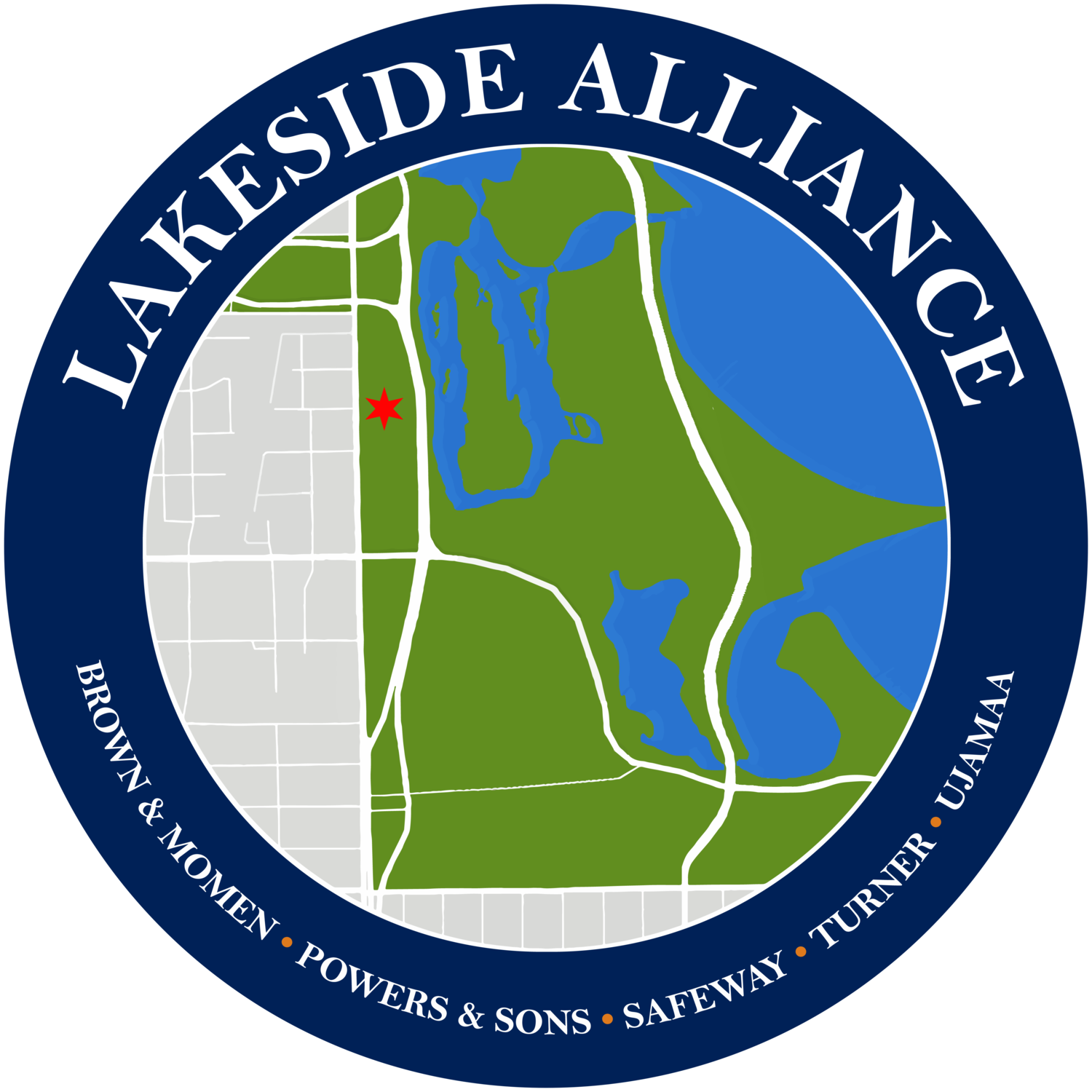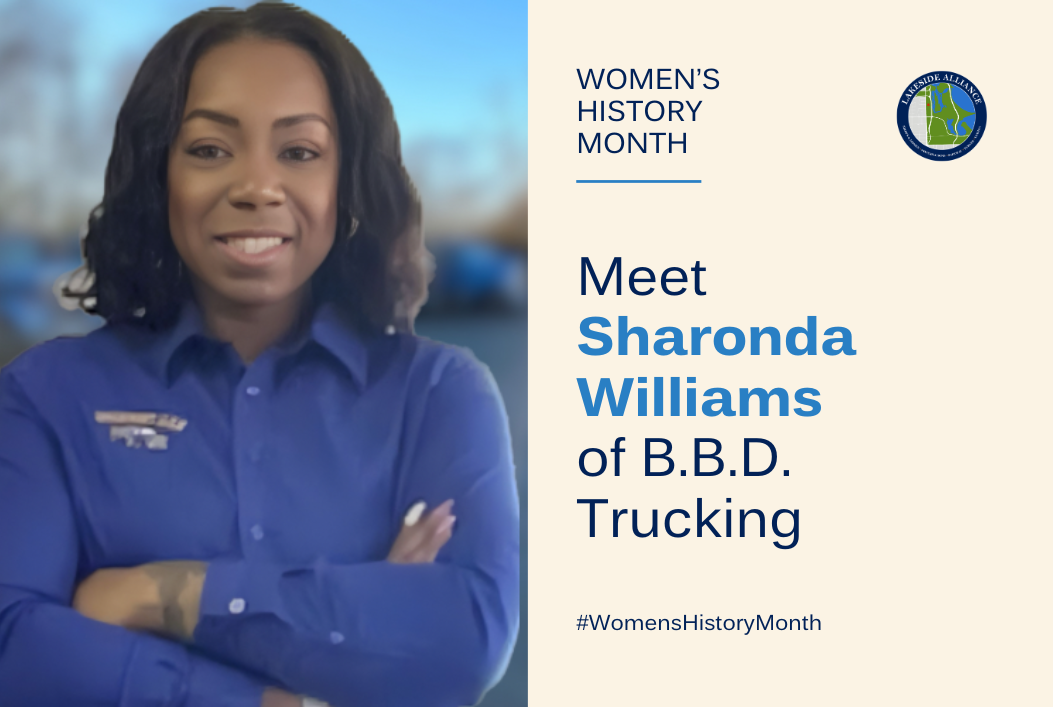Meet Sharonda Williams of B.B.D. Trucking
Sharonda Williams grew up around trucks. She has fond memories of riding alongside her dad in his hauler as a little girl. He founded B.B.D. Trucking in 1978, and it has been a part of her family’s culture ever since. One of her brothers is trained to do mechanic work, another brother holds a CDL, her mother is president of the company and her father serves as vice president. B.B.D. Trucking Co., Inc. is certified in trucking, excavation and grading. As assistant vice president, Williams is the conductor who drives the business and works with various subcontractors.
Passionate about helping small businesses access big opportunities, Sharonda says being part of the Obama Presidential Center project is a game-changer. The difference? Connection and more opportunities for women and small, minority-owned companies, she says. B.B.D. Trucking is doing the hauling for the project, assisting with everything from exporting soil, to bringing in stone, to laying temporary roads.
For Women’s History Month, Lakeside Alliance spoke with Sharonda about her vision for B.B.D.’s future, improving opportunity for women in construction and more:
What are some of your primary responsibilities day-to-day?
You name it, I’m responsible for it. I’ve been with B.B.D. for approximately 10 years. I came on as an administrative assistant and worked my way through, learning the ropes of the company up to my current position. Now I do backend invoicing, accounts receivable, accounts payable, dispatching, and quotes if people are looking for work. I also work with subcontractors and serve as their main point of contact. Anything in this company will run through me on a day-to-day basis.
What is something you like to do to motivate your teams?
I really like to motivate them to be leaders. We subcontract a lot of our work out, so I try to find subcontractors who haven’t worked on larger projects. I motivate older drivers by saying, ‘Take these younger drivers under your wing.’ I find that because they’re more experienced, they enjoy bringing up the next generation of drivers.
What does it mean to you personally to participate in this project, and what does it mean for your business?
Personally, it means a lot. Subcontractors are my passion project, so I like the ability to bring in companies that are just getting started or don’t have access to those larger contracts. Once the Center is completed, to know that B.B.D. had an opportunity to create something amazing for the City of Chicago and the state overall is a great feeling. Being a part of this project was also a big growth opportunity for us. Outside of revenue, being able to make connections that can lead to other growth opportunities means a lot. For me, as a Black woman in this industry where we are few and far between, the opportunity to partner with E. King Construction and have that day-to-day connection means we can lean on each other.
What is your greatest hope for the outcome of the Center?
I hope it does everything it sets out to do — a monument for Obama, revenue for the city, a number of jobs for the community and opportunities for youth to participate in programs. Overall, I hope it helps shift the culture in the area and brings the community up. Jobs and opportunities for the local neighborhood would be my biggest hope.
In your opinion, has the industry improved in terms of opportunity for women?
I do think so! I’ve been here for 10 years. In the last three or four years, we’ve seen that push. Certain contractors and projects want MBE, WBE, DBE. That is an increased opportunity for women. Now, we’re not battling alongside these other companies. We are sought after, where before women were the underdogs. People are looking for us.
What would you say to women who are considering a career in the construction industry?
Absolutely go for it! Be clear about what you’re trying to pursue. It’s not going to be easy. It is still a bit of a boys club, but the industry is looking for more women and opportunity is there if you’re willing to put in the work.
“We are sought after, where before women were the underdogs. People are looking for us.”

